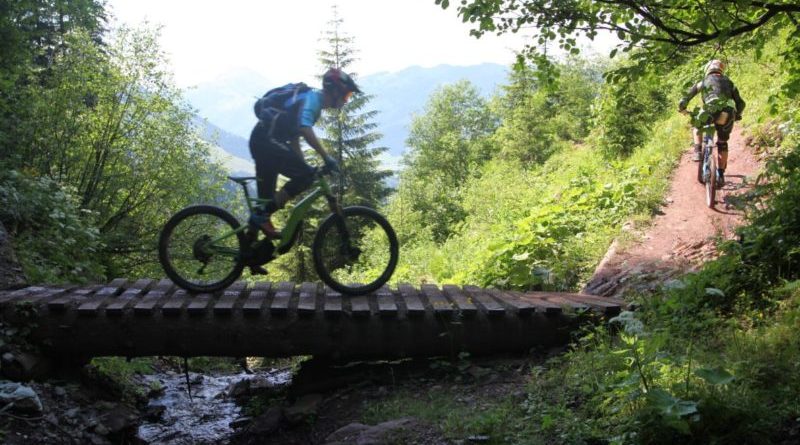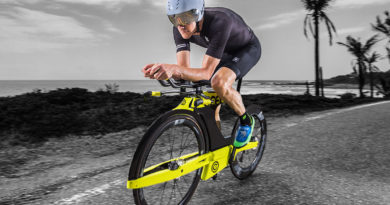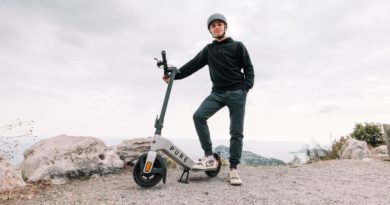IMBA updates electric mountain bike stance to one of approval “when appropriate”
The International Mountain Biking Association – an organisation dedicated to trail building and advocacy work for off road cyclists – has issued an update to its stance on electric mountain biking access.
Trail access for motor-assisted bikes has been a contentious issue for both the industry and its customers, with fears of confusion with motorbikes leading many to not want to risk access bans. It is thought that land managers – once familiar with electric bikes and how integration has streamlined to the point where visually e-MTBs are near identical to pedal-powered machines -may make knee-jerk decisions on trail access for mountain bikers.
As of today, the association’s official stance has changed, however.
Based on lengthy discussion and research of arguments for and against access, IMBA’s stance is as follows:
IMBA is supportive of Class 1 eMTB access to non-motorized trails when the responsible land management agency, in consultation with local mountain bikers, deem such eMTB access is appropriate and will not cause any loss of access to non-motorized bikes. IMBA recognizes that changes in design, technology and the numbers of eMTB users is evolving, and believes these bikes can be managed in a sustainable way for both the environment and other trail users.
In the USA, a class one e-MTB is: an electric bicycle or “low-speed pedal-assisted electric bicycle,” equipped with a motor that provides assistance only when the rider is pedaling, and that ceases to provide assistance when the bicycle reaches the speed of 20 miles per hour.
“First and foremost, we advocate for access for traditional, non-motorized mountain bikes. IMBA does not advocate for access for eMTBs. But, IMBA and mountain bikers need to be at the table for all conversations that discuss access for eMTBs to non-motorized trails that are open to bikes,” said Dave Wiens, IMBA Executive Director.
“Currently, the US Forest Service and Bureau of Land Management (BLM) are clear that they are managing all eMTBs as motor vehicles. But for countless state, county, municipal and other parks and open space trails, there is much uncertainty and confusion. Our position reflects the importance of having local land managers and local mountain bikers involved in decisions to allow eMTB access to non-motorized trails and underscores the importance of maintaining access for traditional, non-motorized bicycles. This topic is being driven by rapidly evolving technology and we recognize that everyone involved needs to be engaged, prepared for challenges and solution-oriented.”
Noting the potential to increase ridership, IMBA’s statement calls for effective management where possible, but warns that anything less jeopardises the organisation’s 30 year-long mission.
The organisation is now offering resources for land managers, including recommendations on what factors should be considered prior to a decision.
In order to counter misconceptions, Trek has been forward thinking in handing land managers electric bikes for demo in some states. This, it is hoped, will put daylight between the notion that e-Bikes are just the same as motorbikes and should be treated as such.
Mountain bike pioneer Gary Fisher told CI.N that he feels its important the industry gets e-Bikes into the press in order that misconceptions are cleared up.
He said at the time: “There’s some pushback on the pedal powered MTB side, for sure. My concern is that the public will mis-understand the e-bike and that could lead to trail closure if any sort of hype builds. We are trying our best to get the mainstream press into it and behind the e-bike. Simply, I ask “do you want to pedal along at 7,000 feet? Of course you do.”
“I’m sad to see some bike mags have boycotted e-bikes and I think that’s because it’s safer to be on the fence for the time being. But you can’t stop the e-bike, it’s the perfect storm. Sales are down for pedal bikes, here’s a great remedy.
“On the contrary, land managers are using them in their fleets. All it requires is for people to have a go and they understand the potential. These are the greenest way to get around over multi-terrain. At the moment the mindset is often that they can’t afford to have these vehicles, but they will buy them eventually.”
The full IMBA statement can be found here.



